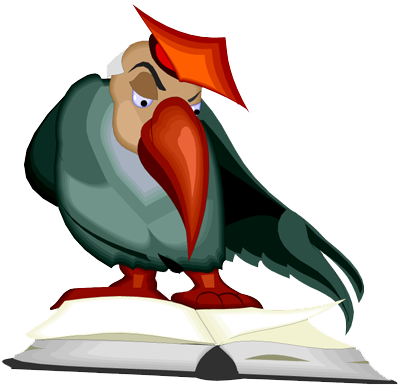
Featured Blog | This community-written post highlights the best of what the game industry has to offer. Read more like it on the Game Developer Blogs.
Angel McCoy gives a few tips to new and future writers on how to build a strong skill foundation before the interviews begin. McCoy is a narrative designer at ArenaNet, working on the AAA MMO GUILD WARS 2.


If you're eyeballing the games industry as a destination for your career, and the "writer" or "narrative designer" job seems right up your alley, then you should know what preparations you can make in advance to better position yourself for success. I hope you find these tips helpful, and I look forward to hearing your feedback, thoughts, and success stories.
Don't just play games, critique them.
When you're playing a game, think like a narrative designer. Notice what works and what doesn't in the UI, in the dialogue, and in the story flow. Look for what's missing, what's misleading, and what's superfluous. Imagine how you might do it better, but also see if you can figure out why they did it the way they did.
The first school for game designers is your own PC/console/mobile device because by playing games you're learning about games. Examining the work of others with a critical eye gives you a view of game design unlike that of a player. When you change your mindset from player to designer, you take the first step toward becoming a professional.
Remember that there's a person and a decision behind every element in the game. For whatever reason, the developers and artists chose the option you're seeing. Develop your questioning mind. Wonder why.
Practice your grammar.
One of the most important bits of advice I ever received about writing was from my high school English teacher, who said: "Before you can break the rules, you have to know the rules." In writing, this applies to grammar, spelling, and proper word choice.
The last three companies I've worked for have required that I take a writing and editing exam. My being hired was contingent upon how well I did. Many game companies are instituting tests to help weed the pretenders and wannabes from the serious professionals. Make sure you can ace that exam!
Nothing makes a product look less professional than misspellings or poor grammar. Get familiar with The Chicago Manual of Style. At the game companies I've worked for, this is the preferred reference for grammar rules. It can be intimidating at first, but hang in there.
For a more friendly refresher on specific grammar rules, check out Grammar Girl. Mignon Fogarty will feed you grammar in delectable bite-sized portions.
Make checking your word choice a habit.
Learning to spell correctly takes diligence. I've been writing professionally for over 20 years, and to this day, I still check the spelling for words I'm unsure of—and there are plenty! Don't trust the spellchecker! Don't always trust your memory. If in doubt, check it out. I use two sites for this: Dictionary.com and Merriam Webster's. If they conflict, go with Merriam Webster's.
Grammar and spelling aren't the only things you have to be diligent about looking up. Word meaning can trip up even the best writers. It's so easy to get the wrong word because you've heard it used incorrectly in speech or maybe it's a homonym. One recent example for me was the word "floe," which refers to a large chunk of ice. I was thinking it should be "flow," but because I had that niggle of doubt, I checked, and sure enough: "floe."
It's not just odd or uncommon words that can be tricky either. I often see writers misuse prepositional phrases. Someone might say, for example, "In the same token..." when the correct phrase is "By the same token..." Choosing the right preposition isn't always obvious. Hone your inner doubt alarm, learn to listen to it, and check, check, check. The next time it comes up, you'll remember.
We get into bad habits when talking (or on social media) because we aren't held to the same quality bar. As a professional writer, getting over that bar is the job.
TRAP: Many people I know call this "?!" an interrobang. Are interrobangs used in professional writing?! No, they are not!! And neither are multiple exclamation points. The interrobang becomes a question mark, and one exclamation point is enough.
I'm being a bit dogmatic here, I acknowledge, but the truth is that professional quality in writing is recognizable, and the interrobang is a sure sign that the writing is unprofessional or informal. Exception: it's okay to use them if you're replicating a casual note, text, tweet, or post.
Learn what passive tense is and what it isn't.
Passive versus active tense is a sometimes confusing and complex topic. Many people believe that if the writer uses a form of the verb "to be," then it must be passive. The truth is far more complicated. Passive tense has much more to do with how the sentence is structured. You can find some excellent tutorials on this, including one from Grammar Girl or this video tutorial below with Grammar Squirrel by UBC Science Writing.
Take the time to do your research into the differences between active and passive sentence structure. The over-use of passive voice will identify you as an amateur. As an added benefit, active tense tends to be more concise and easier to read.
Write dialogue for different characters.
This is a fun exercise! I'm sure I don't have to tell you why it's helpful. What I recommend is that you find an online random character generator like the one at WritingExercises.co.uk. Let the generator create a character for you, then you name the character, give it a profession and social class, and write a dialogue line for each of the following emotions: happy, angry, surprised, curious, afraid, and dying.
Give each character its own traits and maintain its unique personality across all lines. Dialogue traits fall on a spectrum between extremes such as these:
Practical to Flighty
Concise to Rambling
Friendly to Unfriendly
Quiet to Loud
Meek to Forceful
Unintelligent to Smart
Educated to Uneducated
Formal to Informal
Sentimental to Hard-hearted
Kind to Cruel
and many more.
Over time, you'll develop your own innate sense of these traits and will intuitively know where to go with each new character you write. You'll find that you can combine them in unusual and interesting ways to make your character more interesting. For example, a character who is quiet and yet forceful is different from one that is loud and forceful. Play with it and see what fun characters you can come up with. The best part of this exercise is that you can use your favorites as writing samples to show what you can do.
TRAP: Try to do this without using accents. Giving a character an accent is a handy way to differentiate them—almost too handy and thus lazy. Practice choosing the right words, phrases, and sentence rhythm to express your character's personality, career, and social class.
Increase your vocabulary.
Words are your magic, and the more you have, the more spells you can cast. So, learn more words. I do this by regularly looking at a thesaurus just to find a more accurate or interesting word to replace the current one. Our world is flooded with squishy words that don't have much texture or flavor, and yet great words with sharp edges and strong meanings do exist. Make the thesaurus your constant companion: English Oxford Thesaurus, Merriam Webster's thesaurus, and Thesaurus.com.
You can also increase your vocabulary with apps for your mobile device, such as Vocabulary.com or A Word a Day, or with games such as 7 Little Words or one of my personal favorites Quizzitive by Merriam Webster.
Write about games.
If you haven't yet landed your first game-writing job (or even if you have), you can get writing credits on your resume and show that you love games by writing about them. Many media outlets accept article submissions and reviews on games. Write a couple or ten good articles and send them out. Look for submission guidelines on the outlet's site. As soon as you've published your article, you can put the credit on your resume and your future employer will discover what an insightful and skilled writer you are.
Any that don't get accepted, you can put on your own blog so employers looking at your site will see that you've invested your time and energy into games.
TRAP: It's easy to get passionate when reviewing a game, and this is fabulous when you have nothing but nice things to say. However, check your word choices when giving a negative review. You want to be clinical and honest about negative criticism, empathetic and respectful, and always find at least one nice thing to say about a game, even if you have to dig deep. Remember that the people behind the game's design spent many many hours working on it. Make your criticism of it helpful, not shaming. Criticize the game, not the game designers. The moment you make it personal, you've lost your credibility.
In conclusion, have fun and above all else, remember that it takes skill and knowledge to be a professional writer. It's not something just anyone is born with, but a skillset that is actively honed over the course of a lifetime.
For the past 9 years, Angel McCoy has been a writer and narrative designer on the AAA MMO Guild Wars 2. Before that, she lent her creative skills to industry heavy-weights Microsoft Game Studios, XBox.com, Advanced Dungeons & Dragons, and White Wolf's World of Darkness. In her spare time, she serves as Creative Director for the indie game team at Games Omniverse and mentors burgeoning writers. Her narrative toolbox is overflowing with lessons learned and shortcuts discovered, so she's sharing some of the best of them with you.
Read more about:
Featured BlogsAbout the Author(s)
You May Also Like








